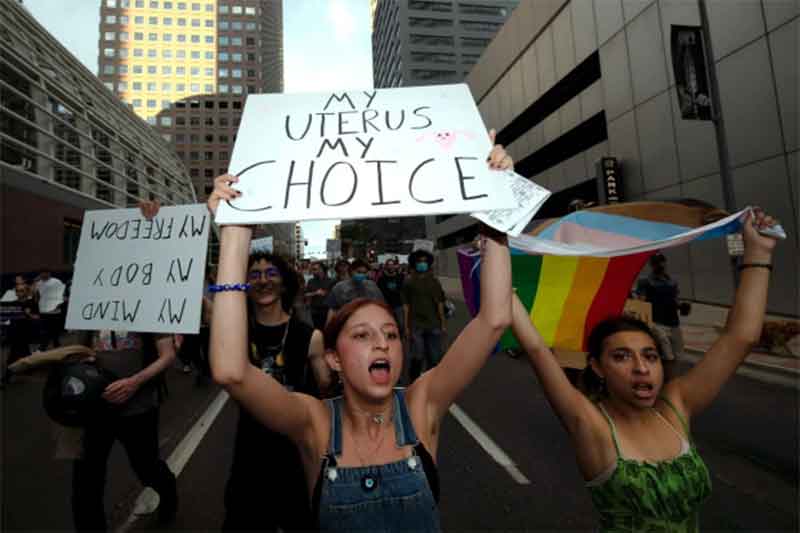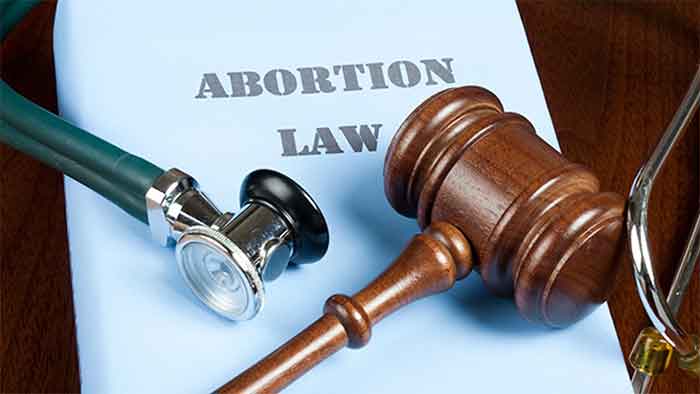
In view of the Alabama’s Supreme Court’s recent decision on frozen embryos (in-vitro fertilization or IVF), the women in the U.S. are in panic.
A fortune.com report (After Alabama’s IVF nightmare, these are the 10 worst states for women to live in, Tue, February 27, 2024) said:
‘Alabama’s Supreme Court held this month that frozen embryos created through IVF will be considered children under state law, setting off a flurry of panic over the fate of stored embryos and the future of fertility services and family planning in the state. The court’s decision proves that reproductive legislation is constantly changing — and women will bear the burden of keeping up with the changes.’
10 WORST U.S. STATES FOR WOMEN
The report said:
‘Currently, 10 states are the worst for women based on health care legislation, wage growth, child-care costs, unemployment figures, business ownership, job security and the potential to become a victim of assault, according to a new WalletHub report and ranking. In addition to Alabama, they include Missouri, Georgia, Wyoming, West Virginia, Arkansas, Texas, Mississippi, Louisiana, and the caboose of the worst states on the list, Oklahoma.’
According to the report following are the states that they offer women the least in.
EQUAL PAY LAWS
The report said:
‘In 2022, women earned an average of 82% of what men earned, per a Pew Research Center analysis – and the pay gap has barely closed in the past two decades.
‘According to a 2019 U.S Census Bureau survey, Wyoming, Oklahoma, Louisiana and Alabama were among the worst states for pay equity. Men earned an average of $20,000 more per year than women in Wyoming, for instance.
‘Part of the gap can be chalked up to behaviors. Women often take on more domestic chores (like cooking, cleaning, laundry, and child care) than men. The Pew analysis found that nearly 70% of working moms with children under age 18 felt great pressure to focus on household responsibilities, as opposed to 45% of working dads. The burden can lead to burnout and incentivises women to clock fewer company hours, leading to lower earnings and fewer promotions. Nearly 50% of employed women felt this pressure as opposed to 35% of employed men.
‘Another part of the gap is due to states lacking legislation in areas like equal pay, state-sponsored childcare and early education programs. Under Wyoming’s Equal Pay Act, which was signed into law in 1963, employers must pay the same, regardless of gender, unless their business model follows systems of seniority, are based on merit, quantity or quality of production, or use a differential based on any factor other than gender.
‘Women, who tend to leave the workforce sooner and clock out earlier to raise kids and take care of the house, are left on the short side of the stick under such rules.’
REPRODUCTIVE RIGHTS
The report said:
‘More than 34 states have passed restrictions on reproductive rights since the Supreme Court overturned Roe v. Wade in June 2022, according to the Guttmacher Institute, a research and policy organization that advances sexual and reproductive rights. Other states could follow Alabama’s lead. Of those, 21 states have passed legislation that the organization describes as “most restrictive” or “very restrictive,” which includes complete abortion bans with few or no exceptions, forced counseling appointments or ultrasounds, no Medicaid coverage for abortions and a state’s ability to shutter abortion clinics.
‘The report’s 10 worst states for women, with the exception of Wyoming, all have very restrictive reproductive restrictions, which means women often need to travel out of state to get medical attention, procedures or medication.
‘“Women should assess broader state policies and evaluate how women are valued as a collective,” said Jo Reger, a professor of sociology at Oakland University. They should also “consider the specific challenges faced by their particular group,” she added, noting that biases that could harm immigrants, undocumented people, refugees, or sexual minorities are stronger in certain states.
‘Reger recommends that women research pending legislation in the states they consider moving to. ACLU maintains an up-to-date map of legislation.
‘How a state values women “impacts where people decide to live,” said Cassandra Happe, an analyst at WalletHub, told Fortune, adding that “states with the most restrictive policies pose challenges for women, who need to decide to stay where they’re at with the current policies or relocate for different opportunities.”
‘While some states are scaring women away, others are hoping to draw them in. Last summer, Michigan governor Gretchen Whitmer launched an ad campaign targeting populations who may be put off by limitations on abortion access, queer rights, and other diversity issues in six red states with a simple message: “In Michigan, all are welcome.” The ad is in its initial run in Georgia, Indiana, Florida, Texas, Tennessee, and South Carolina, according to Sinclair Broadcast Group.
‘Women should consider how issues related to pregnancy and complications are addressed, along with other important factors like “the tax structure concerning dependent care,” and “the laws regarding job discrimination and who they protect,” Reger wrote in a statement. The National Women’s Law Center offers a state-by-state guide on these concerns.’
STATE-FUNDED CHILDCARE AND EARLY EDUCATION PROGRAM
The report by fortune.com said:
‘Half the states in the report–Missouri, Texas, Idaho, Mississippi, and Wyoming–are also states that least efficiently use federal child care dollars. Missouri and Wyoming, among other states, consolidated their early childhood program agencies last year with hopes that families would find it easier to apply for care–but the effects of inadequate child care persists.
‘According to Better Wyoming, a grassroots institution that focuses on statewide change, childcare costs increased by 47% between 2019 and 2021, and more than a third of Wyoming families live in childcare deserts, or areas with either no licensed childcare providers or more than three times as many kids than slots at daycares.
‘The lack of child care options means costs are soaring. The state’s daycare costs for one infant and one preschooler averages about $1,400 per month–an alarming price considering that 75% of the state’s minimum-wage workers are women.
‘Nationally, women make up over two thirds of all minimum-wage workers. For single mothers earning minimum wage, the costs can be a huge challenge, said Happe. Childcare costs are up 32% since 2019, which is difficult for even a two-income household to meet, she said.
‘“But for a single mother, that imbalance between minimum wage and the cost of childcare is the difference between being able to work full time or part time, and might mean relying more on family and friends to pick up the slack.”
‘Companies that offer remote or hybrid work are an alternative that “more young mothers are looking at so they don’t have to invest,” thousands of dollars in childcare “while still balancing their careers,” Happe said.
‘Other benefits companies can keep in mind, according to Reger, are to create “family-friendly environments” that support women and parents, like onsite daycare facilities, comprehensive health insurance and benefits packages.’
ALABAMA’S IVF RULING IS ‘WRONG FOR A WHOLE BUNCH OF REASONS’
Another media report said:
‘John Oliver has weighed in on the debate over the Alabama Supreme Court’s ruling that frozen embryos are people.
‘The “Last Week Tonight” host said the decision was “wrong for a whole bunch of reasons. Mainly, if you freeze an embryo it is fine. If you freeze a person, you have some explaining to do.”
‘The February 16 ruling jeopardized the future of in-vitro fertilization in Alabama. It is not an outright ban, but it could make it harder to conduct IVF.
‘At least three fertility clinics have paused IVF treatment due to fears of legal repercussions, BBC News reported.
‘The Medical Association of the State of Alabama said the ruling may increase the cost of IVF by making clinics liable in wrongful death lawsuits.
‘About 2% of babies born in the US a year are conceived through assisted reproductive technology, of which the main type is IVF.
‘”IVF cycles take weeks of careful monitoring and expensive treatments. You cannot just hit pause and wait out a court case,” Oliver said on Sunday.’
Former U.S. President Donald Trump called on Alabama lawmakers to preserve access to the treatment, in a Friday post on Truth Social: “We want to make it easier for mothers and fathers to have babies, not harder!”
ENDPOINT IS BURNING BOOKS
The report said:
‘Oliver also criticized politicians like Trump for “desperately trying to distance themselves from extreme policies that they have enabled.”
‘”You can say we just want more kids but you are making life incredibly hard for people, including those who desperately want them,” he said.
‘”Burning books and ending IVF are the natural endpoints of the extreme policies they have held hands with.”’
TEXAS GOVERNOR REACTS TO ALABAMA COURT’S IVF RULING
A Fox News report said:
Texas Governor Greg Abbott said Texas needs to address the uncertainty that comes from the recent legal ruling on frozen embryos in Alabama.
The report said:
‘The Alabama Supreme Court ruled that frozen embryos should be considered unborn children.
‘The justices said in an 8 to 1 decision that anyone who destroys them can be charged with unlawful death.
‘That has halted some in-vitro fertilization (IVF) services in Alabama. Fertilization clinics paused treatments, fearing potential legal problems.
‘Lawmakers on both sides of the aisle are worried about the decision.
‘Abbott shared his thoughts Sunday on CNN. He said he wants it to be easier for families to have children – including through IVF – not harder.
‘”These are very complex issues where I’m not sure everybody has really thought about what all the potential problems are and as a result, no one really knows what the potential answers are. And I think you are going to see states across the country come together grappling with these issues and coming up with solutions,” he said.
‘Both Republicans and Democrats in the Alabama Legislature are working on bills that would overrule the state’s Supreme Court ruling and ensure access to IVF treatment.
‘It is not clear if or when that might happen in Texas.
‘Gov. Abbott said the legislature will address the issue when all facts and scenarios are considered.’
LAWMAKERS IN BOTH PARTIES CALL TO PROTECT IVF AFTER ALABAMA RULING
A Time report said on Wed, February 28, 2024:
Lawmakers across the U.S are scrambling to safeguard access to in IVF after several clinics in Alabama paused treatments over a recent state supreme court ruling that classified frozen embryos as children.
The Time report said:
‘The controversial decision by Alabama’s top court effectively opened the door for legal action against those who discard frozen embryos during IVF, a widely-used fertility treatment method involving the fertilization of eggs outside the body. Now the fight over the procedure will move to the legislative realm, with both Democrats and Republicans alike calling to protect the procedure in law. Some Democratic legislators have already introduced measures aimed at preserving the rights of individuals seeking fertility treatments, but a bipartisan solution is yet to emerge as Republicans grapple with reconciling their support for IVF with anti-abortion stances.
‘Sen. Tammy Duckworth, an Illinois Democrat who had her two children via IVF and has spearheaded the effort in Congress to protect the treatment, tells TIME that no Republicans have expressed support for her legislation. Her bill would enshrine a statutory right for patients to access IVF services nationwide and retain authority over how sperm or egg cells are used during such treatments. “Crickets. Not a single one of them has come forward,” Duckworth says.
‘Yet several prominent Republican figures, including former President Donald Trump, have voiced their support for IVF treatments and called on legislators to come up with a solution that protects fertility clinics and preserves the treatment. Former South Carolina Governor Nikki Haley, Trump’s top rival for the Republican nomination, initially said she supported the Alabama ruling but then walked back her comments.
‘The Senate GOP’s campaign arm released a memo telling candidates to affirm support for IVF. “When responding to the Alabama Supreme Court ruling, it is imperative that our candidates align with the public’s overwhelming support for IVF and fertility treatments,” National Republican Senatorial Committee executive director Jason Thielman wrote, warning that Democrats could use the decision as a campaign issue.’
‘“Republicans seem to finally be getting the message that they are out of touch with what vast majorities of Americans — even pro-life Americans — want,” Duckworth says. She first introduced legislation to protect IVF in 2022, but Republicans blocked the bill from passing. Now, she is hoping the pressure from voters will spur Republicans to take action on her latest bill. “I wish Republicans would have come around before people got hurt,” she says, “but I hope that at least now they will help me fix it and protect Americans across the country from being criminalized for trying to start or grow a family through IVF before other states follow Alabama’s lead.”
‘The Republicans calling to protect IVF come amid a broader struggle within the GOP to navigate the increasingly complex landscape of reproductive rights following the U.S. Supreme Court’s 2022 decision in Dobbs v. Jackson Women’s Health Organization, which overturned the federal right to abortion.
‘As Republicans rush to limit the damage of the court’s ruling and develop a unified position, the Biden Administration has pointed to legislation that more than 120 House Republicans, including House Speaker Mike Johnson, co-sponsored last year that would have restricted IVF by establishing that “the term human being includes all stages of life.” The GOP’s previous legislative stance, the White House says, appears at odds with its recent calls to support IVF, highlighting a potential inconsistency in its approach to reproductive rights.
‘There is even a difference between the positions of the two Republicans vying to be the next President. Trump on Friday called on the Alabama legislature to “find an immediate solution to preserve the availability of IVF” in the state, while Haley has cautioned against taking legislative action. “Government doesn’t need to get into something this sensitive,” she told NBC News on Saturday. “This should be between the doctors and the parents, period. If they need to do legislation to fix it, that’s fine, but I do not want states to have knee-jerk reactions to insert government into the conversations with doctors and parents.”’
The Time report added:
‘The Alabama legislature is also wrestling with how to respond to the state court’s decision. Alabama house minority leader Anthony Daniels, a Democrat, recently proposed legislation aimed at clarifying the legal status of embryos by establishing that “any fertilized human egg or human embryo that exists outside of a human uterus is not considered an unborn child or human being for any purpose under state law.” State sen. Tim Melson, a Republican, has said he plans to file a bill clarifying that embryos are not human life until they are implanted inside a uterus.
‘But both bills could face an uphill legal battle. Daniels’ legislation, which has no Republican co-sponsors, would be at direct odds with the Alabama supreme court’s ruling that frozen embryos are considered children under the state constitution. And Melson’s bill, which is yet to be released, may require a constitutional amendment.
‘“We firmly believe in the fundamental right to life and the dignity of every woman to bring life into the world,” Alabama senate Republicans said in a statement. “We are committed to supporting strong families and providing women grappling with infertility the resources and support they need to build healthy and happy families.” Alabama house speaker Nathaniel Ledbetter, a Republican, did not respond to a request for comment on how GOP state lawmakers would respond legislatively.
‘Alabama’s Republican Attorney General Steve Marshall has reassured IVF patients and providers that the ruling will not be wielded to prosecute families or providers. But some clinics have decided to pause IVF treatments over the legal uncertainties stemming from the court’s decision.
‘Meanwhile at the federal level, Duckworth has been getting personal in her messaging. She told TIME that during her own IVF experience more than 10 years ago, three of her five fertilized eggs were found not to be viable and were discarded, an action that could now be considered manslaughter under Alabama law. “You cannot have it both ways,” Duckworth says of pro-life Republicans who claim they support IVF. “Despite what Donald Trump says, you cannot actually be supportive of protecting IVF but then also say a fertilized egg is a human being so women cannot have reproductive choice.”’
















































